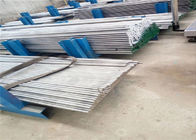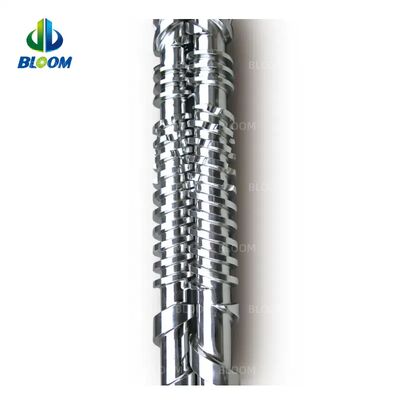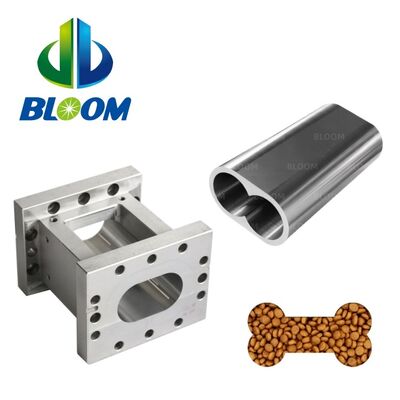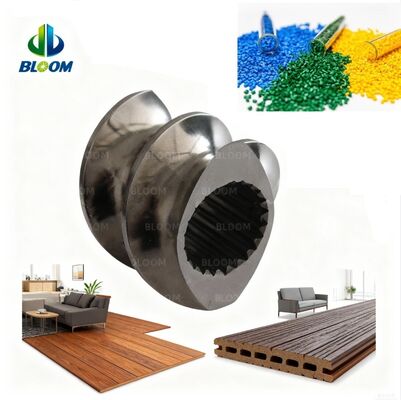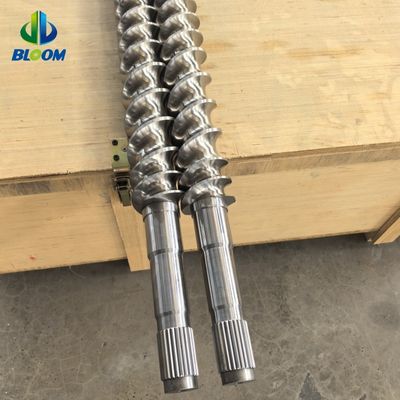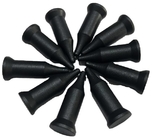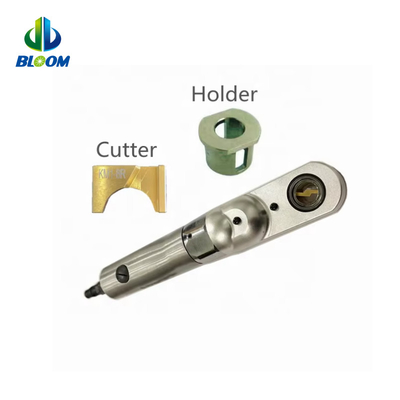जुड़वां पेंच एक्सट्रूडर भागों का उचित रखरखाव लगातार उत्पादन सुनिश्चित करने, उपकरण के जीवन को बढ़ाने और परिचालन लागत को कम करने के लिए आवश्यक है। प्लास्टिक, खाद्य या रासायनिक उद्योगों में जुड़वां पेंच एक्सट्रूडर का उपयोग करने वाले निर्माताओं को अपने उपकरणों को शीर्ष स्थिति में रखने के लिए सर्वोत्तम प्रथाओं का पालन करना चाहिए।
रखरखाव में पहला कदम नियमित निरीक्षण है। पेंच और बैरल को घिसाव, जंग या विकृति के लिए जांचा जाना चाहिए। समस्याओं का शीघ्र पता लगाने से समय पर प्रतिस्थापन या मरम्मत की जा सकती है, जिससे बड़े ब्रेकडाउन को रोका जा सकता है। डाई हेड और डाउनस्ट्रीम घटकों को भी रुकावट या क्षति के लिए निगरानी की जानी चाहिए जो उत्पाद की गुणवत्ता को प्रभावित कर सकती है।
स्नेहन एक और महत्वपूर्ण कारक है। बेयरिंग, ड्राइव गियर और हिलते हुए भागों को घर्षण को कम करने और ज़्यादा गरम होने से रोकने के लिए उचित स्नेहन की आवश्यकता होती है। अनुशंसित स्नेहक का उपयोग करना और सेवा अंतराल का पालन करना सुचारू संचालन सुनिश्चित करता है और एक्सट्रूडर घटकों के जीवन को बढ़ाता है।
सफाई भी उतनी ही महत्वपूर्ण है, खासकर खाद्य या दवा निष्कर्षण अनुप्रयोगों के लिए। अवशेषों का निर्माण उत्पाद की गुणवत्ता से समझौता कर सकता है, बाद के बैचों को दूषित कर सकता है, और पेंच और बैरल पर घिसाव बढ़ा सकता है। उचित उपकरणों और प्रक्रियाओं के साथ नियमित सफाई स्वच्छता और प्रदर्शन मानकों को बनाए रखने में मदद करती है।
भागों का प्रतिस्थापन और उन्नयन निर्माता की सिफारिशों का पालन करना चाहिए। उच्च गुणवत्ता वाले स्पेयर पार्ट्स, जिनमें पेंच, बैरल और डाई हेड शामिल हैं, प्रदर्शन को बनाए रखते हैं और डाउनटाइम के जोखिम को कम करते हैं। प्रतिष्ठित आपूर्तिकर्ताओं के साथ काम करना संगतता और विश्वसनीयता सुनिश्चित करता है, जो बड़े पैमाने पर उत्पादन और अंतर्राष्ट्रीय निर्यात के लिए विशेष रूप से महत्वपूर्ण है।
अंत में, उचित उपयोग, हैंडलिंग और रखरखाव प्रक्रियाओं पर ऑपरेटरों को प्रशिक्षित करने से एक्सट्रूडर की उम्र बढ़ती है। कुशल ऑपरेटर समस्याओं की पहचान जल्दी कर सकते हैं, सही परिचालन प्रोटोकॉल का पालन कर सकते हैं, और अनावश्यक घिसाव या क्षति को रोक सकते हैं।
निष्कर्ष में, जुड़वां पेंच एक्सट्रूडर भागों के रखरखाव में निरीक्षण, स्नेहन, सफाई, समय पर प्रतिस्थापन और उचित ऑपरेटर प्रशिक्षण शामिल है। एक सक्रिय रखरखाव रणनीति अपनाना इष्टतम प्रदर्शन सुनिश्चित करता है, डाउनटाइम कम करता है, और वैश्विक बाजारों को लक्षित करने वाले निर्माताओं के लिए निवेश पर रिटर्न को अधिकतम करता है।

 आपका संदेश 20-3,000 अक्षरों के बीच होना चाहिए!
आपका संदेश 20-3,000 अक्षरों के बीच होना चाहिए! कृपया अपनी ईमेल देखें!
कृपया अपनी ईमेल देखें!  आपका संदेश 20-3,000 अक्षरों के बीच होना चाहिए!
आपका संदेश 20-3,000 अक्षरों के बीच होना चाहिए! कृपया अपनी ईमेल देखें!
कृपया अपनी ईमेल देखें! 
